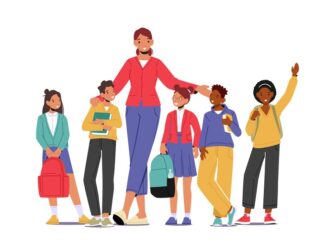As reported by BBC News, a new study from the University of Cambridge suggests that empathy lessons in schools can lead to significant positive changes in students’ behaviour and emotional understanding
About 900 pupils aged between five and 18 in six countries completed a video course and engaged in discussions about it afterwards.
Empathy – the ability to understand and share the feelings of others – is largely considered to be something we develop through childhood and our life experiences.
Pupils were rated by teachers on empathy, behaviour and other characteristics on a scale of 1-10 before the programme began, and again five and 10 weeks later, with the average empathy score rising from 5.55 to 7 during that period.
Their behaviour scores also increased, from 6.52 to 7.89.
The video course was developed by Empathy Studios, which was founded by former science teacher Ed Kirwan.
Pupils are shown thought-provoking films before taking part in a 30-minute activity and discussion session.
Analysis of the programme was supported by Cambridge University’s faculty of education, and it indicated a positive impact on students’ behaviour and emotional literacy within 10 weeks.
Dr Helen Demetriou, a specialist in empathy education at the university, said: “The findings show that a fairly simple, film-based programme can raise pupils’ empathy levels, enhancing their understanding of themselves, others and global issues.
“That supports a more complete learning experience, developing social and emotional skills that we know contribute to improved behaviour and more engaged learning.”
Mr Kirwan said: “The programme’s success lies in teaching students to celebrate difference, which changes their wellbeing and behaviour.
“There’s never an excuse for poor behaviour but often a reason, which greater mutual understanding can potentially address.”
He added: “I think the social unrest we have seen in Britain this summer shows how urgently we need more empathy across society.
“It won’t solve everything, but it is the foundation for solutions, and it starts with education.”




Be the first to comment